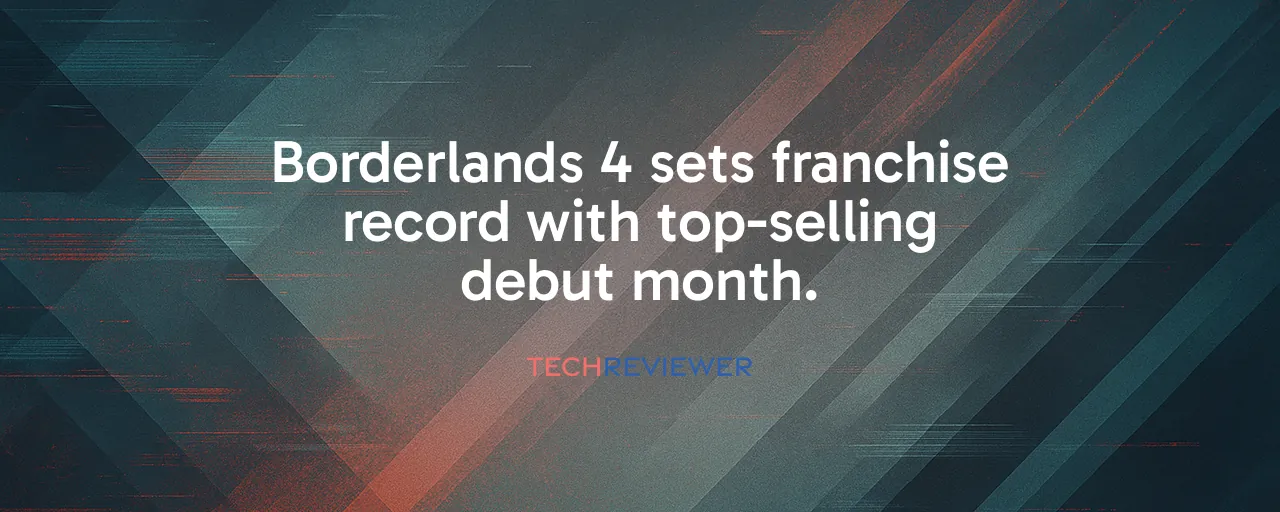A Record-Breaking Launch
When Borderlands 4 hit shelves on September 12, 2025, it took the gaming world by storm. Developed by Gearbox Software and published by 2K Games, the looter-shooter soared to the top of US sales charts for September, outpacing heavy hitters like NBA 2K26 and EA Sports FC 26. According to Circana's data, covering August 31 to October 4, the game raked in 30 percent more launch month revenue than its predecessor, Borderlands 3. This marked a historic first for the franchise, as no prior Borderlands title had claimed the top spot in its debut month.
What drove this success? A mix of bold new features and the franchise's enduring fanbase. Set on the planet Kairos, the game introduces four new Vault Hunters, each with unique abilities that spice up cooperative play. Players raved about the seamless world design, powered by Unreal Engine 5, which lets them glide, grapple, and dodge through vibrant environments without loading screens. The Licensed Parts weapon system added deeper customization, making every gun feel distinct. Yet, the launch wasn't flawless, as PC players ran into serious technical hurdles that tested their patience.
New Mechanics, New Heights
Borderlands 4 pushes the looter-shooter formula forward with ambitious changes. The seamless world design eliminates the clunky loading screens that bogged down earlier titles, letting players explore Kairos with fluid transitions. New traversal mechanics, like gliding and grappling hooks, give combat a dynamic edge, allowing skilled players to outmaneuver enemies from unexpected angles. The Licensed Parts system revamps the franchise's signature billions-of-guns promise, offering meaningful weapon variety that responds to years of fan feedback about repetitive loot.
Cross-platform multiplayer stands out as a game-changer. Friends on PlayStation 5, Xbox Series X and S, and PC can team up effortlessly, breaking down platform barriers. Quality-of-life tweaks, like instanced loot ensuring everyone gets fair rewards, make cooperative play smoother than ever. These innovations helped Borderlands 4 rank as the third best-selling game of 2025 so far, pushing the franchise closer to a staggering 100 million total sales since its 2009 debut.
PC Troubles Cast a Shadow
Despite its commercial triumph, Borderlands 4's launch hit a snag on PC. Players reported stuttering, crashes, and lengthy 10-minute shader compilation times, even on high-end hardware exceeding recommended specs. Digital Foundry's analysis flagged the Badass graphics preset as a performance killer, advising against its use. On Steam, the game earned a Mixed user rating, reflecting widespread frustration. These issues echo challenges faced by other Unreal Engine 5 titles, like Metal Gear Solid Delta: Snake Eater, which struggled to hit stable frame rates on consoles, dipping to 720p in Performance mode.
In contrast, Ghost of Yotei, a PlayStation 5 exclusive launched in the same window, earned praise for its polished performance. The comparison highlights how platform-specific optimization can make or break a launch. Gearbox has promised patches, with the first major update slated alongside the game's initial DLC on November 20, 2025. For now, PC players are left tweaking settings and scouring community guides for workarounds, a stark reminder that cutting-edge tech often comes with growing pains.
Navigating a Crowded Market
September 2025 was a battleground for new releases, with nearly half of the top 20 best-sellers being fresh titles. Sports games like NBA 2K26, EA Sports FC 26, and Madden NFL 26 claimed three of the top five spots, while Sony's Ghost of Yotei and Konami's Silent Hill: f also made strong debuts. Total video game spending jumped 10 percent year-over-year to $4.84 billion, driven by a 24 percent surge in hardware sales, largely thanks to the Nintendo Switch 2's blockbuster launch. Yet, Borderlands 4 stood out, even as its delayed Switch 2 version left some fans waiting.
The game's $70 price tag aligns with 2025's standard for AAA titles, though rising costs sparked debate. Some players hesitated, wary of performance issues and steep competition. Gearbox CEO Randy Pitchford's response to complaints, suggesting players code their own engine or seek refunds, stirred controversy, alienating parts of the community. Despite this, the game's success proves the looter-shooter genre still has legs, especially for premium, non-live-service titles that prioritize content over ongoing monetization.
Lessons From the Launch
Borderlands 4's launch offers two key lessons. First, comparing it to Metal Gear Solid Delta: Snake Eater shows that Unreal Engine 5's potential comes with steep optimization demands. While Borderlands 4 dazzled with visuals and mechanics, its PC woes highlight the need for earlier, more rigorous optimization, as Epic Games CEO Tim Sweeney noted in August 2025. Second, Ghost of Yotei's smoother rollout underscores the advantage of focusing on a single platform at launch. Developers juggling multiple platforms face tougher challenges ensuring consistent quality.
For players, the game delivers a thrilling cooperative experience but demands patience on PC. For the industry, it signals that fans still crave premium looter-shooters, even in a market leaning toward live-service models. Gearbox's commitment to post-launch support could redeem the rocky start, but only if patches deliver. As gaming evolves, balancing innovation with polish remains the ultimate challenge, one Borderlands 4 both exemplifies and struggles to meet.
